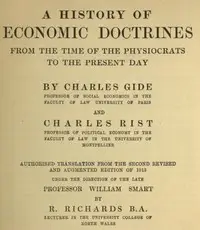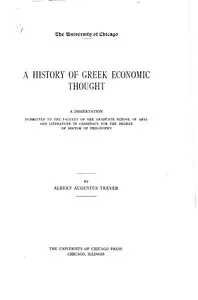"A History of Economic Doctrines" by Charles Gide is a detailed journey through the world of economic ideas, starting with the Physiocrats and continuing to more modern times. The book explores the thinkers and principles that have shaped how we understand money, trade, and the economy. Early on, it shines a light on the Physiocrats who believed in a "natural order" and saw land as the main source of wealth, helping to explain how their groundbreaking ideas paved the way for future economic theories to either agree or disagree with them. By studying these thinkers together, the book builds a wider picture of where our economic understanding has come from today.

A History of Economic Doctrines from the time of the physiocrats to the present day
By Charles Gide
From theories that celebrated the land to modern ideas about trade, this book unearths the hidden connections of economic thought throughout history.
Genres
Released
2018-07-13
Formats
epub (images)
epub3 (images)
mobi (images)
epub
mobi
txt
Free Download
Summary
About the AuthorCharles Gide was a French economist and historian of economic thought. He was a professor at the University of Bordeaux, at Montpellier, at Université de Paris and finally at Collège de France. His nephew was the author André Gide.
Charles Gide was a French economist and historian of economic thought. He was a professor at the University of Bordeaux, at Montpellier, at Université de Paris and finally at Collège de France. His nephew was the author André Gide.
Total Reviews
10.0k
Total reviews from Goodreads may change














